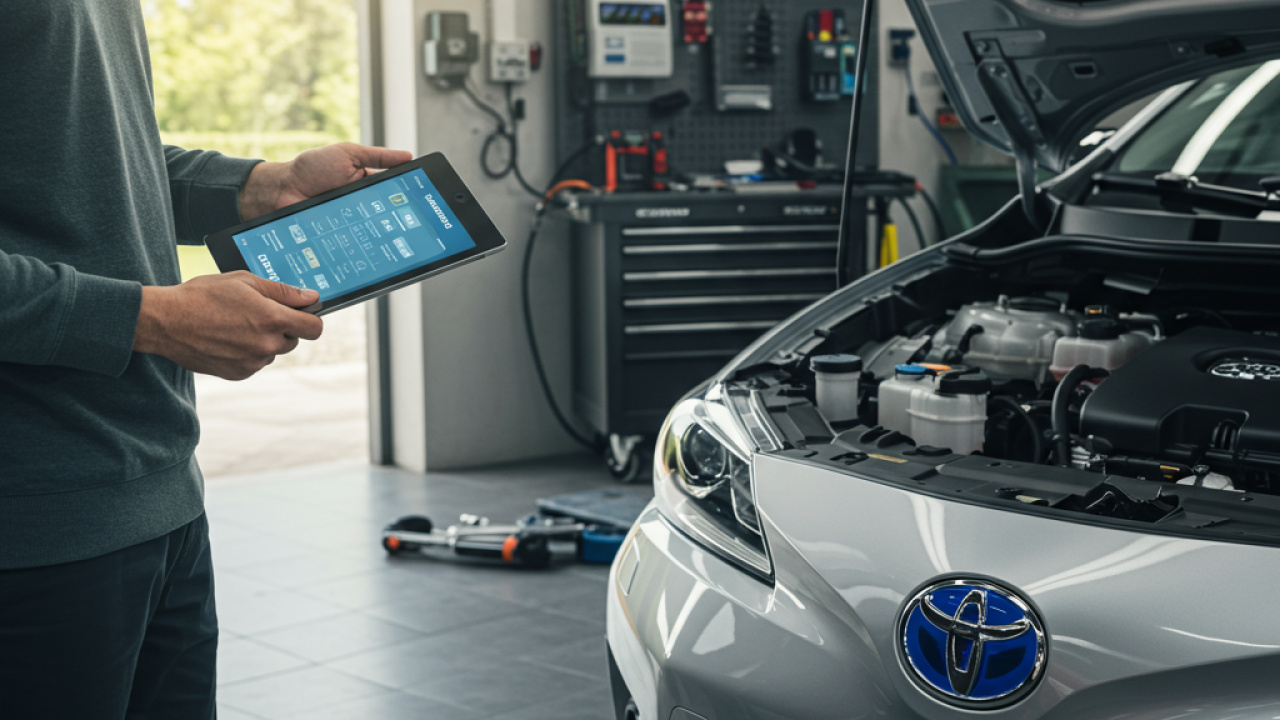As the automotive industry evolves, hybrid cars have gained significant popularity due to their fuel efficiency and lower emissions. They combine traditional internal combustion engines with electric propulsion, offering a unique driving experience. However, like any vehicle, hybrids require regular maintenance to perform at their best. This guide will walk you through the essential maintenance schedule, practical tips, and common questions regarding hybrid car upkeep.
Understanding Hybrid Cars
Before diving into maintenance specifics, it’s crucial to understand how hybrid cars operate. They typically feature two power sources: a gasoline engine and an electric motor, which work together to optimize fuel efficiency.
Types of Hybrid Cars
- Full Hybrids: Can run on just the electric motor, just the gasoline engine, or a combination of both.
- Plug-in Hybrids: Have a larger battery that can be charged using an external power source, allowing for longer electric-only driving ranges.
- Mild Hybrids: Use an electric motor to assist the gasoline engine but cannot run solely on electric power.
Why is Maintenance Important for Hybrid Cars?
Hybrid vehicles have unique components, such as batteries and electric motors, which require specific care. Proper maintenance can help:
- Enhance fuel efficiency.
- Extend the lifespan of components.
- Prevent costly repairs.
- Ensure safety and reliability.
Essential Maintenance Schedule for Hybrid Cars
To keep your hybrid car performing optimally, adhere to the following maintenance schedule:
Every 5,000 to 7,500 Miles
- Oil Change: Regular oil changes are critical to keep the internal combustion engine running smoothly. Use synthetic oil for better performance.
- Air Filter Replacement: Check and replace the engine air filter to ensure optimal airflow and engine performance.
- Tire Rotation: Rotate tires to ensure even wear and prolong tire life.
Every 15,000 Miles
- Brake Inspection: Inspect the brakes, including pads and rotors, since hybrids often use regenerative braking, which can affect wear patterns.
- Coolant Check: Verify the condition of the coolant, especially in hybrid systems, to prevent overheating.
Every 30,000 Miles
- Battery Inspection: Have the hybrid battery checked by a professional to ensure it’s functioning correctly.
- Transmission Fluid Change: Change the transmission fluid to maintain smooth gear transitions.
- Cabin Air Filter Replacement: Change the cabin air filter to improve air quality inside the vehicle.
Every 60,000 Miles
- Brake Fluid Change: Replace brake fluid to maintain braking efficiency.
- Spark Plug Replacement: Replace spark plugs to ensure proper engine performance.
Every 100,000 Miles
- Hybrid Battery Replacement: Although hybrid batteries are designed to last, they may need replacement after this mileage. Be aware of symptoms indicating battery issues.
- Fuel Filter Replacement: Replace the fuel filter to maintain fuel system efficiency.
Practical Tips for Hybrid Car Owners
Maintaining a hybrid car involves more than adhering to a schedule. Here are some practical tips:
Monitor Battery Health
Keep an eye on the hybrid battery’s health. Many hybrid cars provide diagnostic information on the dashboard. If you notice a decrease in performance, consult a professional.
Utilize Regenerative Braking
Take advantage of regenerative braking by anticipating stops and slowing down gradually. This practice can help recharge the battery and improve efficiency.
Keep Tires Properly Inflated
Maintaining the correct tire pressure is crucial for optimal fuel efficiency. Check tire pressure monthly and keep them inflated to the manufacturer’s specifications.
Common Issues and Their Solutions
Hybrid cars can present unique challenges due to their complex systems. Here are some common issues and potential solutions:
Battery Issues
Symptoms: Reduced electric range, warning lights on the dashboard.
Solution: Have the battery tested by a professional. In some cases, a simple reset might solve the issue, while others may require replacement.
Brake Problems
Symptoms: Squeaking, grinding noises, or a spongy brake pedal.
Solution: Inspect the brake pads and rotors for wear. Replace any worn components promptly to ensure safety.
Engine Performance Issues
Symptoms: Poor acceleration, unusual noises, or warning lights.
Solution: Regularly check the air and fuel filters, spark plugs, and engine oil. Address any issues with a qualified technician.
Comparative Overview: Hybrid vs. Conventional Cars
| Feature | Hybrid Cars | Conventional Cars |
|---|---|---|
| Fuel Efficiency | Higher, especially in city driving | Lower, varies by model |
| Emissions | Lower emissions | Higher emissions |
| Maintenance Cost | Can be higher due to specialized parts | Generally lower |
| Driving Experience | Quieter, smoother acceleration | Typically louder, traditional feel |
Frequently Asked Questions (FAQ)
What is the lifespan of a hybrid battery?
The lifespan of a hybrid battery can vary, but most are designed to last between 8 to 15 years or around 100,000 to 150,000 miles. Factors like driving habits, climate, and maintenance can affect longevity.
How does regenerative braking work?
Regenerative braking converts kinetic energy from the vehicle during braking into electrical energy, which is then stored in the hybrid battery. This process helps to recharge the battery and improve overall efficiency.
Why is regular maintenance crucial for hybrids?
Regular maintenance is essential for hybrids because it helps ensure that both the gasoline engine and electric components operate efficiently. Neglecting maintenance can lead to decreased performance, increased emissions, and costly repairs.
Can I service my hybrid car at a regular mechanic?
While many routine maintenance tasks can be performed by a regular mechanic, it is advisable to have specialized services done at a dealership or hybrid specialist. These professionals have specific training and tools to deal with hybrid systems.
Conclusion: Key Takeaways
Maintaining a hybrid car is essential for ensuring peak performance, safety, and longevity. By following a structured maintenance schedule and being aware of potential issues, you can enjoy the benefits of your hybrid vehicle for years to come. Remember:
- Regular oil changes and inspections are crucial.
- Monitor battery health and address issues promptly.
- Utilize regenerative braking to enhance efficiency.
- Consult professionals for specialized maintenance.
With the right care, your hybrid car can provide a reliable, efficient, and environmentally friendly driving experience.

